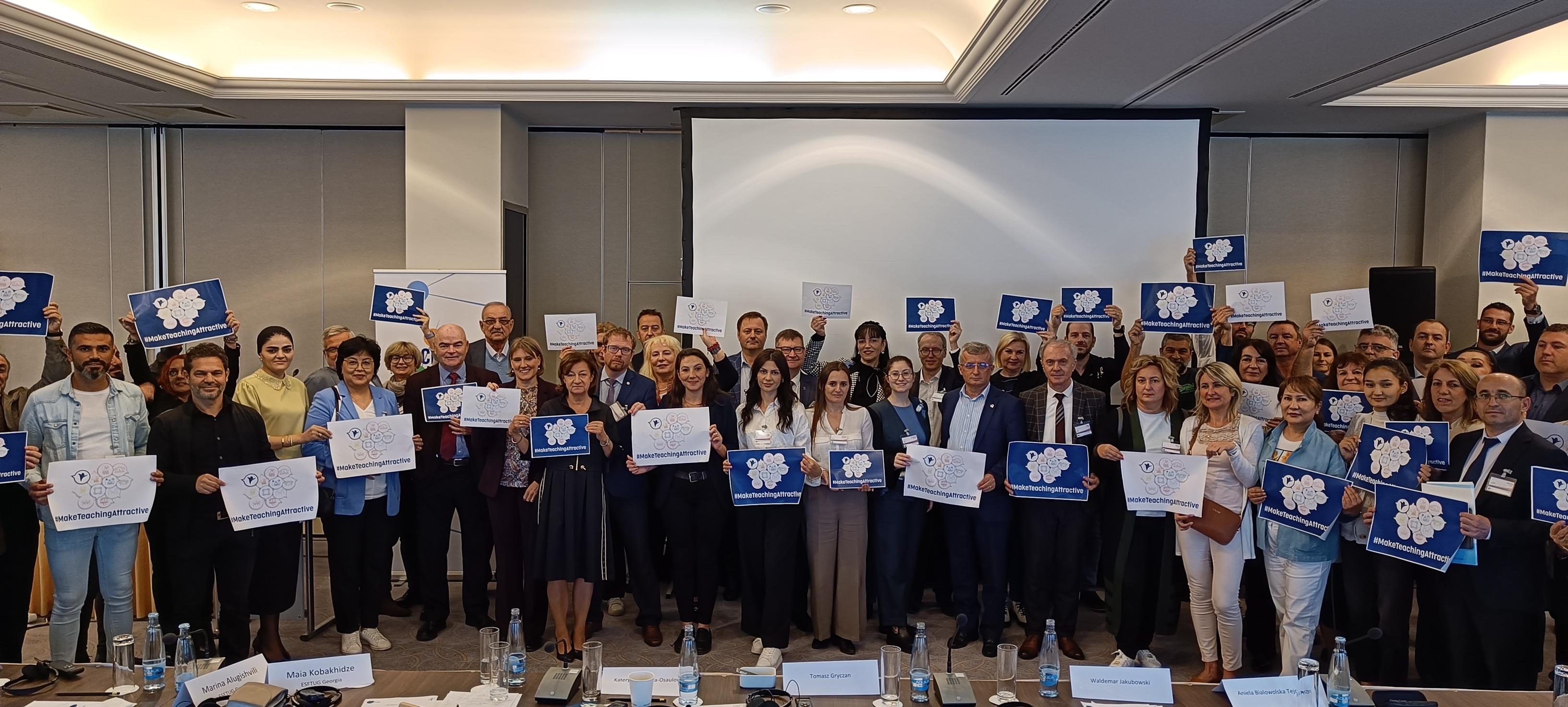CEE Roundtable 2023: Raising the Status and the Attractiveness of Teaching Profession
Published:
The Central Eastern European Roundtable took place in Prague, Czechia from 9 to 11 October 2023.
The goal of this year’s roundtable was to discuss how to raise the status of the teaching profession in Central Eastern Europe and exchange know-how and good practices among member organisations. The meeting followed the first ever edition of the European Week of Teachers organised by ETUCE between 2 and 6 October 2023 in the frame of its #MakeTeachingAttractive Campaign. This major two-year campaign was launched in 2022 at the ETUCE mid-term Conference in Liège and will culminate at the ETUCE Conference in 2024.
Together with Frantisek Dobsik, President of ČMOS-PS, ETUCE President Larry Flanagan, welcomed the fellow education trade union representatives in Prague and opened the meeting by emphasising the important role of the Central Eastern European RoundTable. Susan Flocken, ETUCE European Director underlined the focus on the most challenging issues in Central Eastern Europe, pointing in particular to the need to strengthen social dialogue, democracy, and trade union rights as well as to enhance working conditions in the sector.
Among the keynote speakers, featured Rob Copeland, Chair of the ETUCE Standing Committee for Higher Education and Research (HERSC) who outlined the role of the Bologna Process in supporting Higher Education and Research (HER) staff and presented the ETUCE call the Ministers in preparation of the 2024 Bologna Ministerial Conference which is to take place in Tirana. He invited colleagues from the CEE-Roundtable to bring the demands of ETUCE to their Minister’s attention. ETUCE’s demands develop around three priorities for higher education and research, including adequate public funding, high-quality working conditions for staff, and the emphasis on fundamental values.
Also, Hugues Moussy, Head of the Systems Performance and Assessment Unit of the European Training Foundation (ETF) underlined that in the context of the changing world of work, skills, anticipation, development, and validation are key issues for the work of ETF agreements covering a variety of topics. He touched upon contemporary challenges in the labour market, including the aging population and migration.
ETUCE also held a solidarity session for its member organisations from Ukraine connecting directly with the president of Trade Union of Education and Science Workers of Ukraine (TUESWU), Greorgiy Trukanov. He expressed sincere gratitude to the entire ETUCE and EI family for their support and financial help to the teachers in Ukraine. He presented the current situation of Ukraine and the continued impact of the conflict on education. Addressing the Roundtable in person, Kateryna Maliuta-Osaulova, International Secretary of TUESWU informed the participants further about the current teachers' and students' situation in the country.
Expressing solidarity from the CEE-Roundtable with the teachers of Israel and Palestine following the new outbreak of violence and war, the ETUCE European Director informed the participants of the EI-ETUCE statement condemning any form of violence and calling for peace in Israel and Palestine.
On specific request from member organisations, ETUCE organised a side event for member organisations from countries with EU candidate countries to learn more about the EU accession process. Eva Horelova, Deputy Head of Mission of the EU Representation in Czechia discussed with the delegates the role of social partners in the process with an aim to identify how education trade unions and their members can support teachers in preparing for the accession. The CEE Round Table closed with the adoption of the Statement on the Attractiveness of the Teaching Profession in Central Eastern European countries.